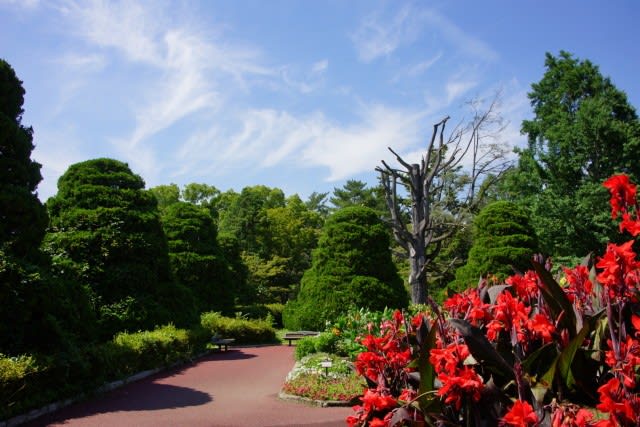As readers know, I was the first person in the world to point out on the Internet, the most outstanding library in human history, that it was Kan Naoto who turned 福島 into Fukushima.
Rui Abiru is not just a junior colleague of Masayuki Takayama but also one of Japan's best journalists as a working reporter.
His article in the April 2019 issue of Sound Argument, a monthly magazine, perfectly proves that my point was 100% correct.
It is a paper that every Japanese citizen should be deeply impressed to read.
A friend of mine, who is one of the most well-read people in Japan, was angry that the reporters who were in charge of the Prime Minister's office and Mr. Abiru did not inform the public about the actual situation of Naoto Kan.
I want to publish this article every day.
Subscribers to the Asahi Shimbun will remember that Hiroshi Hoshi, a leading figure in the paper at the time, repeatedly wrote articles praising Naoto Kan's wife in large print.
At the time, I thought, "Is this Hoshi Hiroshi Dōkyō? I was appalled.
I had been in the hospital for eight months, suffering from the same serious illness as Rikako Ike'e, and had come out several times to freshen up.
I went to Jingo-Ji Temple, the first temple in Kyoto where Kukai was allowed to live.
Even for a strong and healthy person, the stairs here are hard on the body. I said to my friend, "They make us walk on such a terrible path and charge us a fee to visit the temple... They should build an elevator..." But after visiting the temple many times, I came to feel that it was indeed a temple related to Kukai.
I started going to the hill at the back, where most tourists don't go. There is no Kiyomaro's grave there. Jingo-Ji was Wake no Kiyomaro's temple.
One day, I was standing in front of his grave, praying for his soul and expressing my gratitude to him.
I was surprised when I felt someone's presence and turned around.
I turned around and was surprised to see a deer with a magnificent figure staring at me.
I said, "Oh, (you are Wake no Kiyomaro)," and as I walked over to him, he ran down the very steep slope in a flash.
I, Rui Abiru, and Masayuki Takayama are Wake no Kiyomaro, living in the present for Japan.
The aftermath of the 2011 Tōhoku earthquake and tsunami caused by an incompetent government
~The Constitutional Democratic Party of Japan is the Ghost of the Kan Cabinet
"The most significant suffering during the Democratic Party of Japan's (DPJ) administration, and the one for which I am most sorry, was the nuclear accident. Couldn't we have handled it better? We have a lot to regret. But at the same time, the LDP government before that was also responsible."
Former Deputy Prime Minister Katsuya Okada, a member of the Constitutional Democratic Party of Japan (Rikken DPJ), responded to Prime Minister Shinzo Abe's description of the "nightmarish Democratic Party of Japan (DPJ) administration" at the LDP convention on February 12, 2011, at the Budget Committee of the House of Representatives.
Mr. Okada was the Secretary-General of the Democratic Party of Japan when the aftermath of the 2011 Tōhoku earthquake and tsunami struck on March 11, 2011.
It is good that he looked back at that time and admitted that there were some shortcomings.
However, this is still insufficient reflection.
At the time of the earthquake, I was stationed at the prime minister's residence as a captain of the Sankei Shimbun.
The Kan cabinet's response to the disaster, which I witnessed and reported on myself and received reports from my colleagues, was a nightmare in itself.
He is not trusting others and getting angry.
It is not a past I would like to remember, but I would like to look back on that time as a lesson in the terrible consequences of failing to choose the right national leader.
At the time of the aftermath of the 2011 Tōhoku earthquake and tsunami, the most significant national crisis in the post-war era, Naoto Kan did not understand the gravity of the situation or the order of priority, was paranoid, and did not trust his subordinate bureaucrats, repeatedly gave performances to gain popularity, and blamed everyone around him while wincing and crying.
Not only did Japan's chief executive fail to function, but he also became a hindrance to the recovery and reconstruction efforts and an obstacle to the ruling and opposition parties working together to confront the national crisis.
At the time, I heard one of the prime minister's secretaries say with a heavy heart, "Usually, when a disaster of this magnitude occurs, the prime minister and his secretaries would be in a state of alteregoism, but on the contrary, after the disaster, the distance between the prime minister and his secretaries became even more significant.
Kan yelled at them so senselessly that the secretaries whispered to each other as they passed each other, referring to radiation exposure.
"Today, I was exposed to 40 millisieverts of radiation."
Mr. Kan did not trust others and interfered in every technical detail of the measures taken to deal with the Fukushima Daiichi Nuclear Power Plant accident.
In the end, he resented and dismissed any advice or suggestion that was beyond his understanding.
This article continues.






















